Dot art: the artist burns paper with incense sticks and creates incredible paintings
Categories: World
By Pictolic https://pictolic.com/article/dot-art-the-artist-burns-paper-with-incense-sticks-and-creates-incredible-paintings.htmlKorean Park Ji Hyun (Park Ji Hyun) — the author of an interesting series of paintings called "Incense Series" (incense). The unusual thing is that the artist creates his works by burning rice paper with incense sticks.
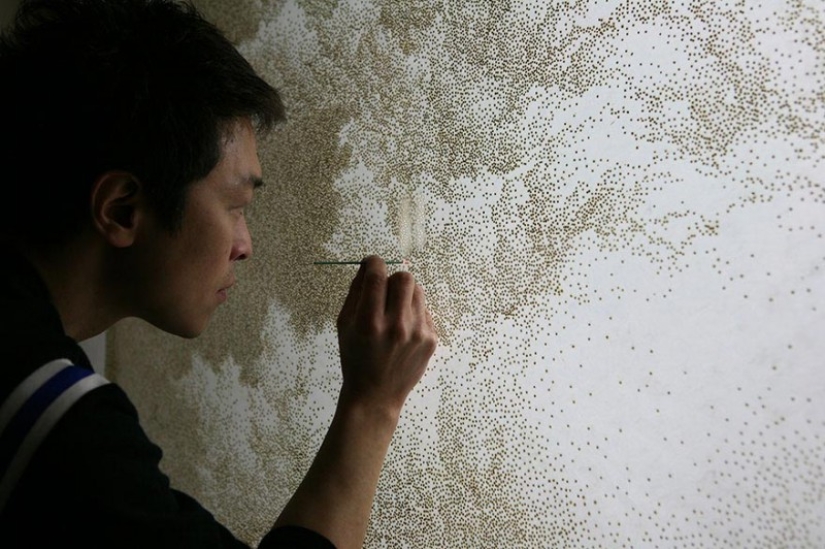
Park Ji-hyun has found a unique and typically Asian approach to pointillism — he uses lit incense to burn tiny holes in huge sheets of rice paper, while obtaining artistic compositions.

While most artists use paints, pencils and other materials to apply them to canvas or paper, Korean artist Park Ji-hyun, on the contrary, reduces the mass of paper on which he creates his unusual drawings.
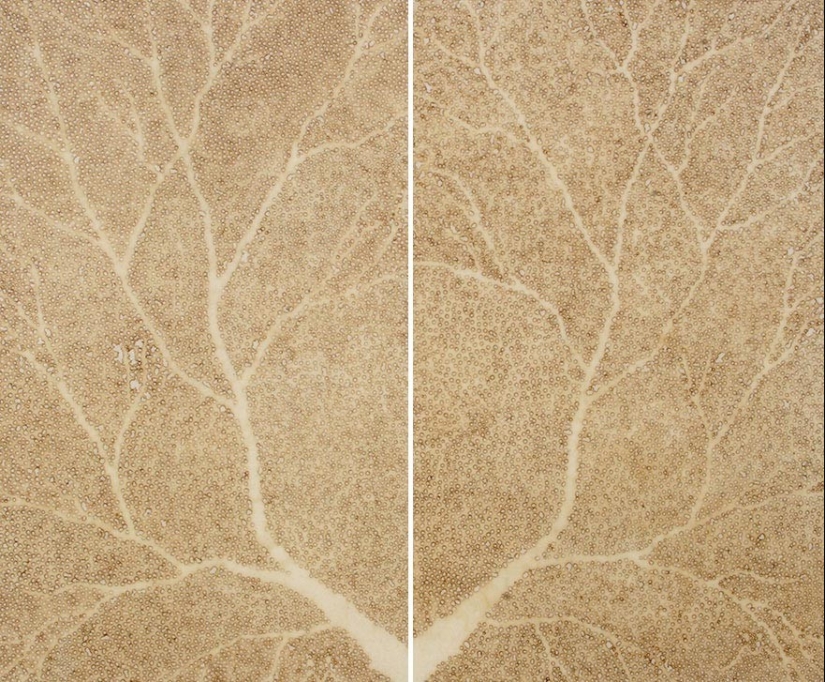
The idea of creating such paintings came to the artist for a reason, because the word for burning incense sticks, which he uses, translates from Korean as "utopia".
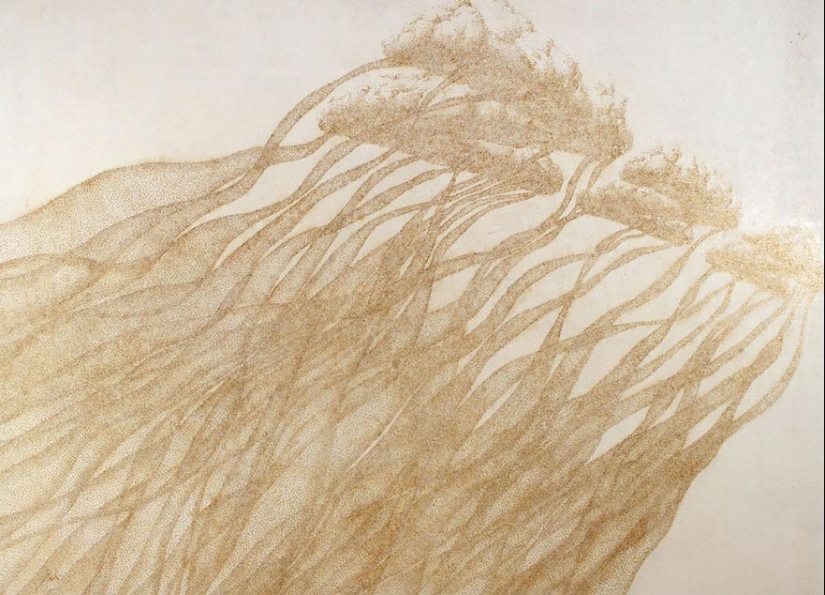
And the creator hopes that with his paintings he creates a utopian and harmonious feeling. He considers his art a reflection of the concept of Yin and Yang.
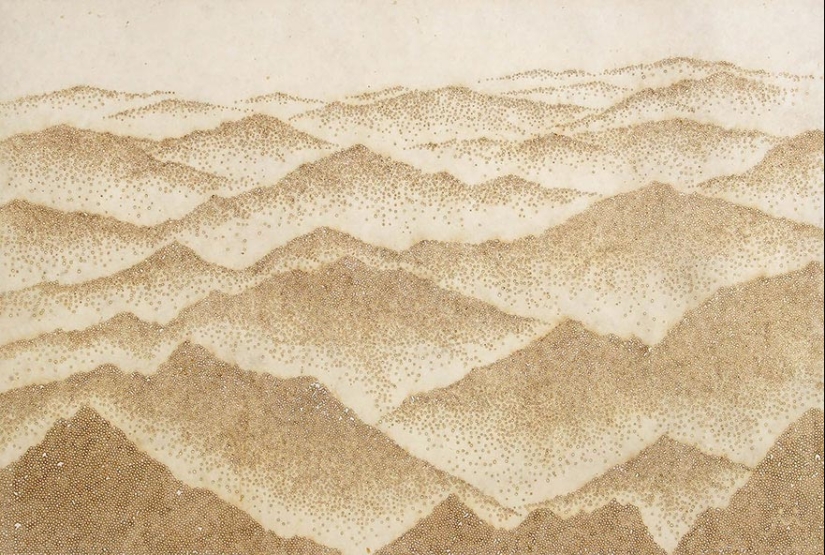
The burning lasts exactly as long as the desired image appears on the paper: a tree, mountains, clouds, and so on.
The final works are applied to the varnished surface, allowing the viewer to observe the reflections of the white paper. This incredible, meticulous and long-lasting technique requires skill, a steady hand and patience. First of all, patience.
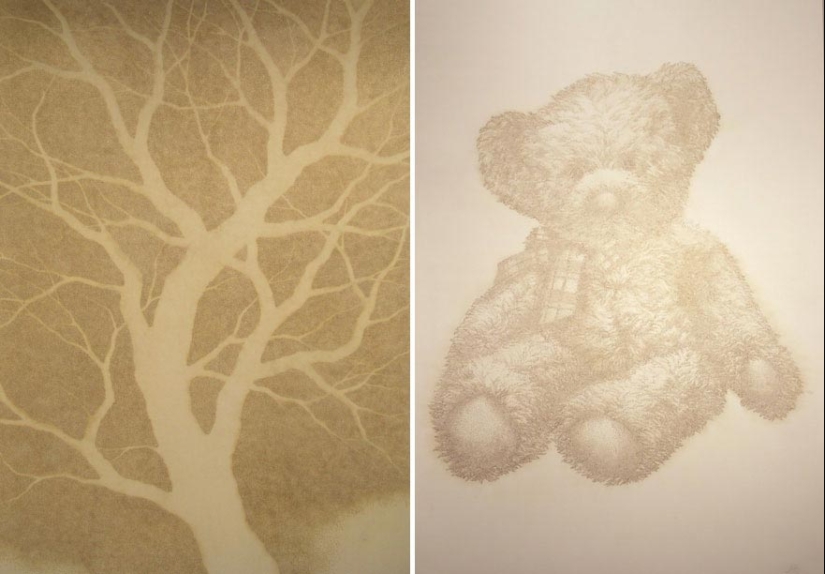
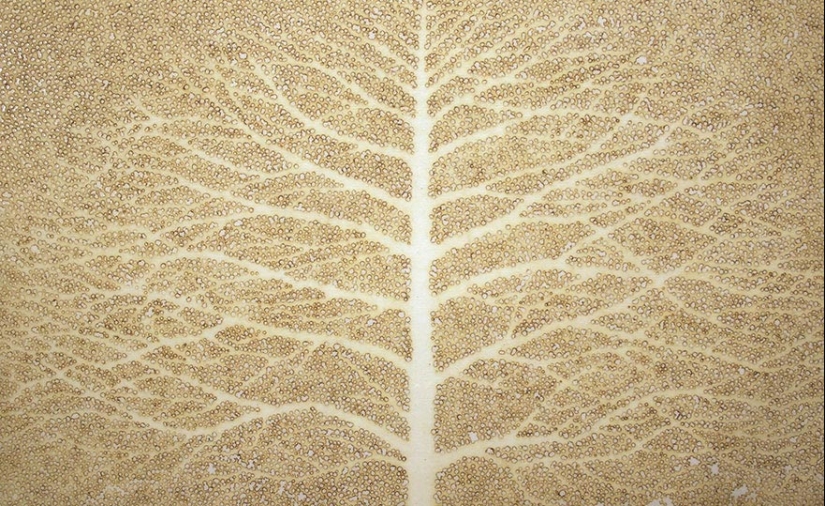
Today, such a drawing system is even taught in some art schools. And, as the students say, the technique is not as simple as it may seem at first glance.
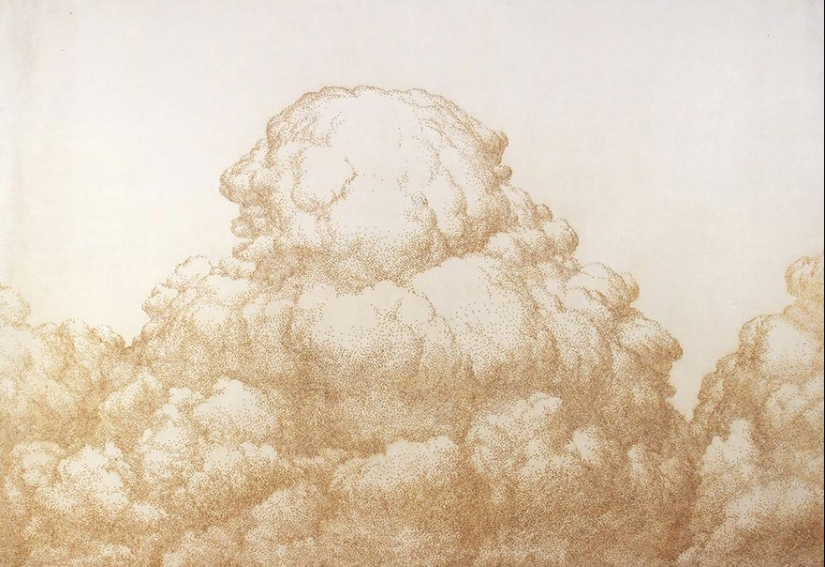
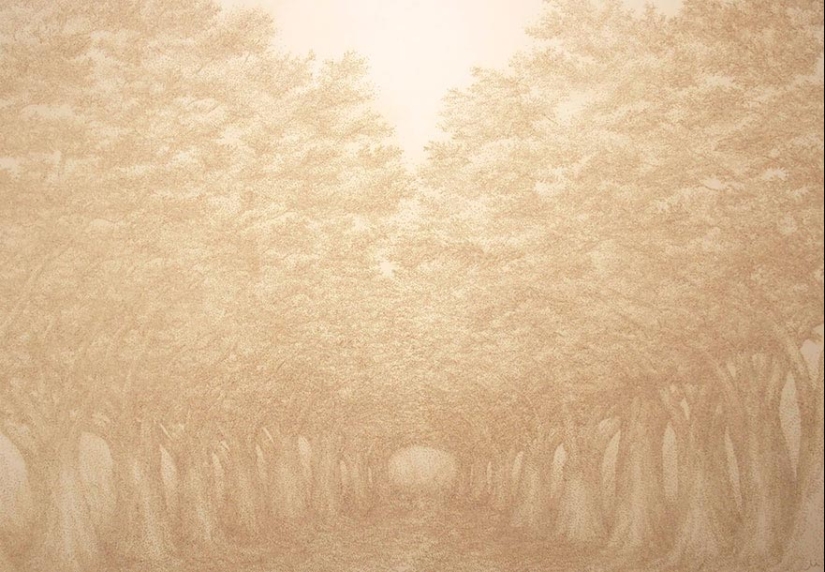
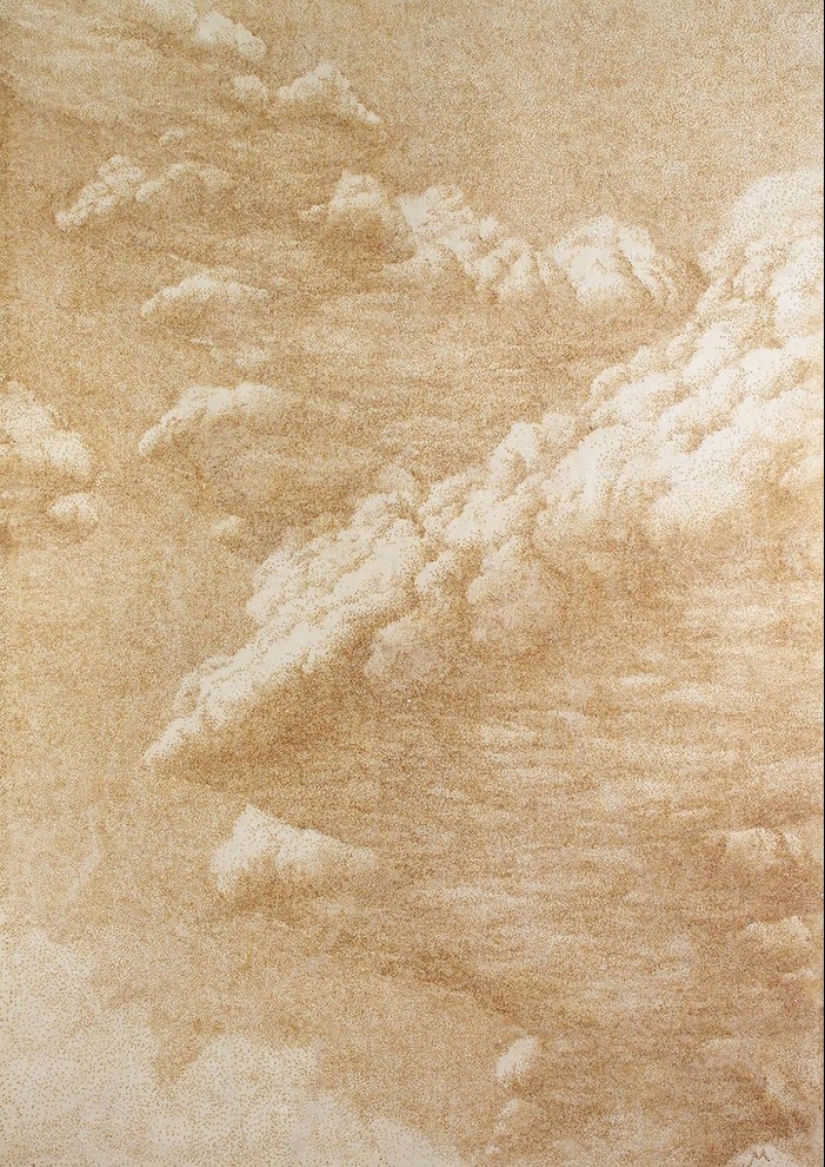
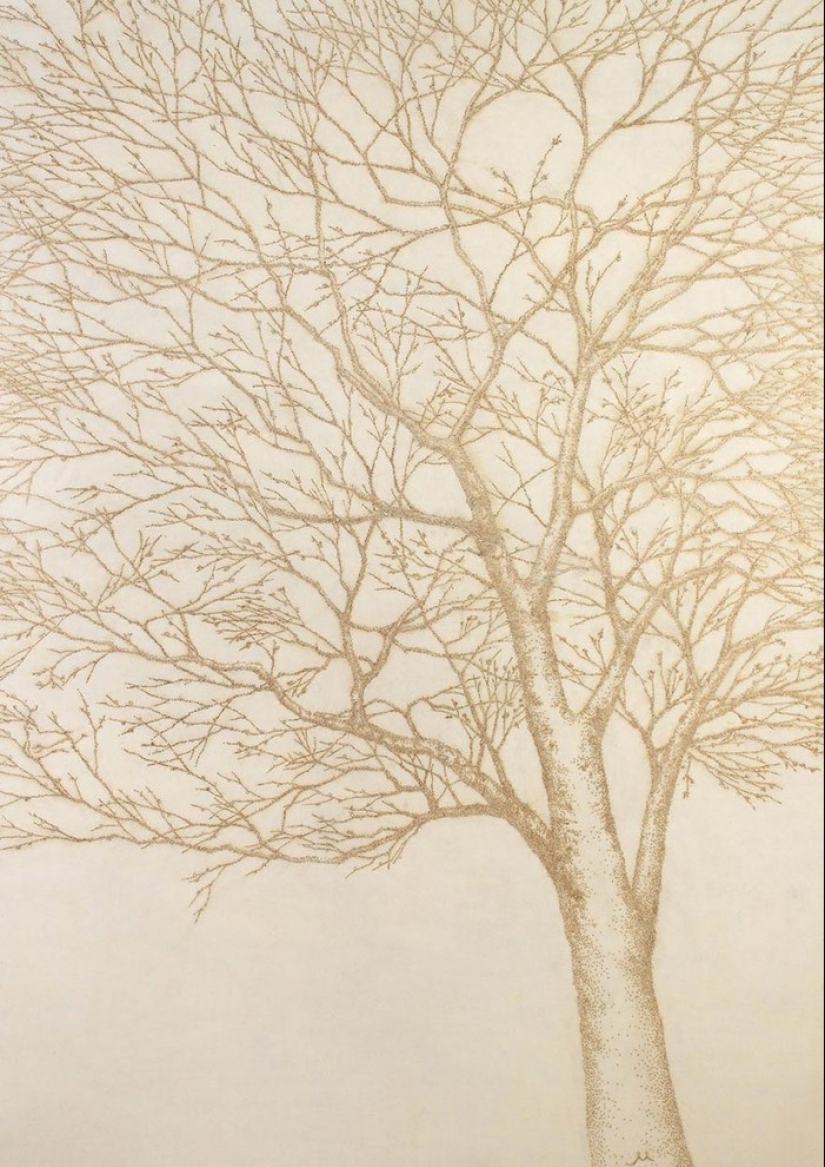
Recent articles

It's high time to admit that this whole hipster idea has gone too far. The concept has become so popular that even restaurants have ...

There is a perception that people only use 10% of their brain potential. But the heroes of our review, apparently, found a way to ...

New Year's is a time to surprise and delight loved ones not only with gifts but also with a unique presentation of the holiday ...